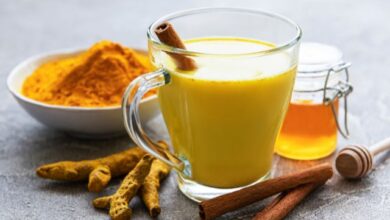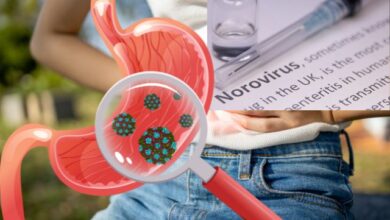5 Foods That Help You Sleep Better: Unlock a Restful Night’s Sleep
"Discover 5 foods promoting better sleep. Unlock a restful night's sleep naturally. Try them today!"

Counting sheep not working? These delicious 5 Foods That Help You Sleep Better are packed with nutrients & wake up feeling refreshed!
Have you ever felt like you’ve been tossing and turning in bed all night, counting sheep until the sun comes up? You’re not the only one. There are millions of people worldwide who have trouble sleeping, like insomnia, which makes them feel tired, foggy, and grumpy. But what if the secret to getting a good night’s sleep wasn’t just about counting sheep, but about what you eat?
This article talks about how food can help you sleep better naturally. We’ll talk about five yummy foods that you can easily find, which can help you have a peaceful night’s sleep. From tasty treats to fish that’s full of fat, these choices have nutrients and things in them that can help you relax and make your sleep better. So, forget about counting sheep and get ready to learn how simple changes to what you eat can help you fall asleep faster and wake up feeling great!
The Science of Sleep and Food: Understanding the Connection
Ever wondered why a warm glass of milk before bed seems to lull you to sleep? The answer lies in the fascinating connection between sleep and food.
The Sleep Cycle Explained:
A good night’s sleep isn’t just about staying unconscious for eight hours. It’s a journey through different sleep stages, each vital for physical and mental restoration. There are two main stages:
REM (Rapid Eye Movement): This stage is marked by rapid eye movement, increased brain activity, and dreaming. It’s crucial for memory consolidation and learning.
Non-REM (Non-Rapid Eye Movement): This stage includes deeper sleep phases promoting physical repair and tissue growth.
The Role of Food in Sleep Regulation:
Surprisingly, what you eat can significantly affect your sleep quality. Some nutrients and compounds found in food act as natural sleep aids:
- Melatonin: This hormone regulates your sleep-wake cycle, signaling your body when it’s time to wind down.
- Magnesium: Vital for muscle relaxation and nervous system function, contributing to better sleep.
- Tryptophan: Precursor to serotonin, promoting calmness and well-being, leading to better sleep.
- Calcium: Works with magnesium to enhance muscle relaxation and overall sleep quality.
Food vs. Medication: A Natural Approach
While medication might seem like the only solution for sleep difficulties, dietary changes offer a natural alternative. By adding sleep-promoting foods to your diet, you can support your body’s natural sleep regulation mechanisms and potentially reduce reliance on medication.
It’s essential to remember that dietary changes may not work for everyone, and consulting a healthcare professional for personalized advice is recommended. However, exploring the power of food as a sleep aid can be a simple and tasty first step towards a good night’s rest.
Top 5 Sleep-Promoting Foods: Nature’s Sleep Aids on Your Plate
Now that we understand the science behind the sleep-food connection, let’s explore some delicious options you can add to your diet to unlock a better night’s sleep.
| Food | Sleep Benefits | Serving Suggestion |
|---|---|---|
| Kiwis | Rich in serotonin (converts to melatonin) | 1-2 kiwis, 1 hour before bed |
| Almonds | Contains melatonin & magnesium (muscle relaxation) | Small handful, before bed |
| Tart Cherry Juice | Natural source of melatonin & antioxidants | 1 cup, 30 minutes before bed |
| Fatty Fish (Salmon, Tuna) | Rich in omega-3 fatty acids (promotes relaxation) | 3-4 oz baked serving for dinner |
| Bananas | Provides potassium & magnesium (muscle relaxation) | 1 medium banana with 1 tbsp almond butter, before bed |
Kiwis: Nature’s Sleep Candy (Serving Suggestion: 1-2 kiwis, 1 hour before bed)
- Kiwis are more than just a burst of tangy sweetness; they’re packed with antioxidants and vitamin C.
- Their secret weapon for sleep is serotonin, which your body can convert to melatonin, the sleep-regulating hormone.
- Studies suggest that eating kiwis before bed can improve sleep quality, helping you fall asleep faster and wake up feeling refreshed.
B. Almonds: The Mighty Munch for Sleep (Serving Suggestion: Small handful, before bed)
- Almonds are a powerhouse of nutrients, including protein, healthy fats, and fiber.
- They contain both melatonin and magnesium, helping to regulate sleep cycles and promote relaxation.
- Studies show that eating almonds before bed can improve sleep duration, especially for those with mild sleep problems.
Tart Cherry Juice: A Tart Twist for Sweet Dreams (Serving Suggestion: 1 cup, 30 minutes before bed)
- Tart cherry juice is a natural source of melatonin and antioxidants, contributing to better sleep quality.
- Drinking tart cherry juice before bed can improve sleep duration and quality, leading to deeper sleep and feeling more refreshed upon waking.
- It also contains anthocyanins, antioxidants with anti-inflammatory properties that can further promote relaxation and sleep.
Fatty Fish: Swimming Your Way to Better Sleep (Serving Suggestion: 3-4 oz baked salmon for dinner)
- Fatty fish like salmon are rich in omega-3 fatty acids, known for their anti-inflammatory and mood-boosting effects.
- Omega-3s can promote relaxation, reduce inflammation, and potentially improve sleep duration and quality.
- Incorporating fatty fish into your dinner routine a few times a week can not only benefit your heart and brain but also help you sleep better.
Bananas: The Sleepytime Staple (Serving Suggestion: 1 medium banana with 1 tbsp almond butter, before bed)
- Bananas are a natural source of potassium and magnesium, important for muscle relaxation and sleep regulation.
- They contain carbohydrates, promoting the production of tryptophan, which converts to serotonin, promoting calmness and sleepiness.
- Pairing a banana with almond butter before bed can provide a satisfying and sleep-promoting snack, helping you feel relaxed and ready for sleep.
Incorporating these sleep-promoting foods into your diet can be a tasty and simple way to improve your sleep quality naturally. So, next time you’re planning your meals, consider adding these items to your grocery list for a better night’s rest.
Additional Tips for a Restful Night’s Sleep
While these sleep-promoting foods can help you sleep better, a complete approach is important for consistent restful sleep. Here are some extra tips to help:
Establish a Regular Sleep Schedule: Try to sleep and wake up at the same time every day, even on weekends. This helps your body know when it’s time to sleep.
Create a Relaxing Bedtime Routine: Wind down before bed with calming activities like reading or taking a warm bath. Avoid things like watching TV or using phones, as they can keep your brain active.
Optimize Your Sleep Environment: Make sure your bedroom is cool, dark, and quiet. Use things like blackout curtains and earplugs if needed.
Limit Caffeine and Alcohol: Try not to have caffeine in the afternoon or evening, as it can mess with your sleep. And while alcohol might make you sleepy at first, it can disrupt your sleep later on.
Engage in Regular Exercise: Exercise can help you sleep better, but avoid doing intense workouts too close to bedtime.
Remember, being consistent is important. By following these tips and adding sleep-promoting foods to your diet, you can create a healthy sleep routine and enjoy better sleep, more energy, and overall well-being.
Conclusion: Embrace the Power of Food for a Better Night’s Sleep
We’ve uncovered the link between food and sleep, revealing 5 tasty options that can naturally aid sleep. From kiwi’s serotonin to fatty fish’s omega-3s, these foods are full of goodness for relaxation and better sleep.
Remember, dietary changes are just one part of good sleep habits. Combine them with regular sleep schedules, relaxing routines, and a cozy sleep environment. If sleep troubles persist, seek advice from a healthcare professional. Embrace the power of food and healthy habits for nights full of rest and brighter, more energized days ahead!
- Healthy Food Vs Junk Food: Things You Need To Know
- Health Myths and Facts: Can We Eat Fruits at Anytime During the Day? See What Experts Say
- Amazing Fruit Peaches: Nutritious, Benefits, Side Effects
5 Foods That Help You Sleep Better: FAQ
Q: Are these foods guaranteed to cure insomnia?
A: While these foods contain sleep-promoting nutrients, they may not cure insomnia for everyone. However, adding them to your diet can naturally improve sleep quality for many.
Q: Are there any side effects to consuming these foods?
A: Most of these foods are safe when eaten in moderation by healthy individuals. But if you have health conditions or allergies, consult a healthcare professional before changing your diet significantly.
Q: What if I’m allergic to some of these foods? Are there alternatives?
A: There are plenty of other sleep-promoting foods to try:
- If allergic to kiwis, try cherries, grapes, or pineapples for melatonin.
- For almond allergies, consider pumpkin seeds, cashews, or sunflower seeds for magnesium.
- If tart cherry juice isn’t for you, go for chamomile tea.
- If you don’t eat fish, flaxseeds or walnuts are rich in omega-3s.
Q: How long until I see results from eating these foods?
A: It varies. Some notice changes in days, others over weeks. Consistency matters!
Q: Should I replace medication with these foods?
A: Always consult your doctor first. These foods can complement medication but might not replace it entirely for everyone.



